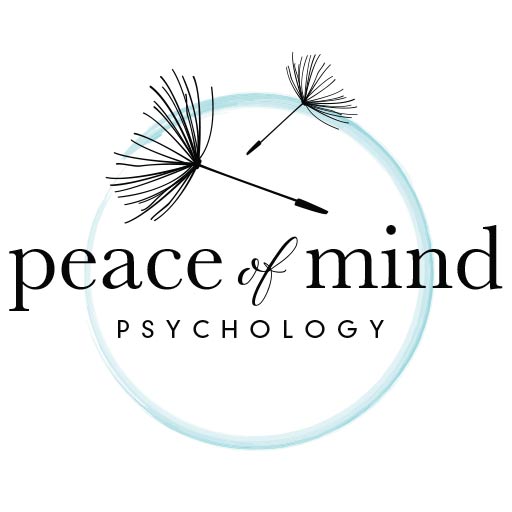With you Every
Step of the Way

Your well-being is my priority. Since 2006, I have provided Calgary area clients with a wide range of psychological and counseling services to suit their needs. Whether you are looking for support as an individual, a couple, or a family, my therapeutic approach is designed to strengthen confidence, build coping strategies, and assist in the healing process.


Together, we will employ a range of evidence-based treatments and therapeutic tools proven to promote self-awareness and skills building. Potential strategies include Cognitive Behavioural Therapy (CBT), Mindfulness-based Psychotherapy, Couples Therapy, Gottman Method, Attachment-based Psychotherapy, and Accelerated Resolution Therapy (ART).


Couples Therapy
Working on your relationship matters
People in unhappy relationships have a higher risk of illness and shortened lives by an average of four years. This is the result of exposure to chronic psychological arousal and stress, which negatively affects our physical and mental health over time. Not surprisingly, people in happy relationships have a far lower rate of stress and illness. Not only that, but they also tend to be more health-conscious because they look after each other. The answer to making a relationship work is very simple: happy couples have a positive dynamic were positive thoughts and feelings balance the negative ones.
I enjoy working collaboratively with couples of every age, ability, and orientation to develop a greater sense of empathy, understanding, and connection to one another. I focus on attachment dynamics and relationships issues including: communication, conflict resolution, intimacy, co-parenting, infidelity, and trust issues.
Whether you feel disconnected from your partner or are simply tired of arguing, couples counselling can help by providing you with a non-biased, outside perspective of your relationship. I have extensive experience and training in couples therapy, and it would be my pleasure to share evidence-based strategies with you that are proven to effectively strengthen communication, intimacy, trust, and conflict resolution.
In session, we will identify attachment patterns in your relationship, and you and your partner will learn new ways to nurture respect and closeness towards each other. You will begin using more practical skills to communicate and learn how to manage your conflicts in a positive way. With a little guidance and support, I am confident that you can find the momentum to gain more satisfaction in your relationship and to deepen your connection with each other.


Couples Therapy
Working on your relationship matters
People in unhappy relationships have a higher risk of illness and shortened lives by an average of four years. This is the result of exposure to chronic psychological arousal and stress, which negatively affects our physical and mental health over time. Not surprisingly, people in happy relationships have a far lower rate of stress and illness. Not only that, but they also tend to be more health-conscious because they look after each other. The answer to making a relationship work is very simple: happy couples have a positive dynamic were positive thoughts and feelings balance the negative ones.
I enjoy working collaboratively with couples of every age, ability, and orientation to develop a greater sense of empathy, understanding, and connection to one another. I focus on attachment dynamics and relationships issues including: communication, conflict resolution, intimacy, co-parenting, infidelity, and trust issues.
Whether you feel disconnected from your partner or are simply tired of arguing, couples counselling can help by providing you with a non-biased, outside perspective of your relationship. I have extensive experience and training in couples therapy, and it would be my pleasure to share evidence-based strategies with you that are proven to effectively strengthen communication, intimacy, trust, and conflict resolution.
In session, we will identify attachment patterns in your relationship, and you and your partner will learn new ways to nurture respect and closeness towards each other. You will begin using more practical skills to communicate and learn how to manage your conflicts in a positive way. With a little guidance and support, I am confident that you can find the momentum to gain more satisfaction in your relationship and to deepen your connection with each other.


Trauma Therapy
Traumatic events can affect your brain and your life
Scientific evidence reveals that traumatic events physically alter our brains. The event provokes hyperarousal in the brain, which results in hypervigilance, alertness, anxiety, poor sleep, and changes in appetite.
Post-traumatic stress disorder can occur after a very scary or traumatic event, such as abuse, an accident, a significant loss, or a natural disaster. Symptoms of PTSD include reliving the event through nightmares or flashbacks, avoiding reminders of the traumatic event, and feeling unsafe in the world, even when a person is not in danger.
Unfortunately, people often experience triggers after a traumatic event. Seemingly harmless situations can now be interpreted as dangerous and trigger fight, flight, or freeze responses. The brain and body remember the trauma, and intuitively respond in an effort to protect you from getting hurt again. However, this new pattern of hypervigilance can be very debilitating to your personal and physical well-being, as well as your relationships.
Psychological trauma can affect your life for many years after the causal event, and it is essential to get help and move forward. You may feel scared talking about your trauma, but it will allow you to process difficult events and redefine the trauma’s impact in your life. Professional mental health care will offer you therapeutic strategies that have proven valuable in helping people to overcome distress, pain, and dysfunction after trauma.
Therapeutic approaches, such as Cognitive Behavioral therapy CBT and Accelerated Resolution Therapy ART, are evidenced to significantly address post traumatic stress. These strategies help to raise awareness of the true impact of trauma, reduce or eliminate trauma symptoms, regain a sense of empowerment and control in one’s life, overcome addictions associated with traumatic stress, and improve daily functioning.


Trauma Therapy
Traumatic events can affect your brain and your life
Scientific evidence reveals that traumatic events physically alter our brains. The event provokes hyperarousal in the brain, which results in hypervigilance, alertness, anxiety, poor sleep, and changes in appetite.
Post-traumatic stress disorder can occur after a very scary or traumatic event, such as abuse, an accident, a significant loss, or a natural disaster. Symptoms of PTSD include reliving the event through nightmares or flashbacks, avoiding reminders of the traumatic event, and feeling unsafe in the world, even when a person is not in danger.
Unfortunately, people often experience triggers after a traumatic event. Seemingly harmless situations can now be interpreted as dangerous and trigger fight, flight, or freeze responses. The brain and body remember the trauma, and intuitively respond in an effort to protect you from getting hurt again. However, this new pattern of hypervigilance can be very debilitating to your personal and physical well-being, as well as your relationships.
Psychological trauma can affect your life for many years after the causal event, and it is essential to get help and move forward. You may feel scared talking about your trauma, but it will allow you to process difficult events and redefine the trauma’s impact in your life. Professional mental health care will offer you therapeutic strategies that have proven valuable in helping people to overcome distress, pain, and dysfunction after trauma.
Therapeutic approaches, such as Cognitive Behavioral therapy CBT and Accelerated Resolution Therapy ART, are evidenced to significantly address post traumatic stress. These strategies help to raise awareness of the true impact of trauma, reduce or eliminate trauma symptoms, regain a sense of empowerment and control in one’s life, overcome addictions associated with traumatic stress, and improve daily functioning.


Anxiety and depression
We all feel sad or worried at times. Low levels of stress helpfully motivate or warn us of danger. But, continued anxiety and depression can harmfully cause unexpected and unhelpful symptoms that negatively impact our lives, including how we think, feel, and act.
Anxiety or depression can be triggered by a specific event or stressful life experience. In some cases, people experience anxiety or depression as a result of certain thoughts patterns like believing that we are not good enough or that everything must be perfect. Symptoms of anxiety and depression include feeling nervous, sad, weak or tired, having problems sleeping, changes in appetite, having problems concentrating or enjoying daily activities. If these symptoms are affecting your daily functioning or you are not feeling yourself, consider seeking help and making self-care a priority.
Cognitive behavioral therapy (CBT) is an effective evidence-based approach used to address anxiety and depression. The main principle of CBT is that our thoughts, feelings, and behaviours work together, and the goal is to identify and change the unhelpful patterns of thinking that feed anxious and negative thoughts. I will teach you the specific CBT strategies that you need to help you identify problem behaviours and replace them with helpful responses.


Anxiety and depression
We all feel sad or worried at times. Low levels of stress helpfully motivate or warn us of danger. But, continued anxiety and depression can harmfully cause unexpected and unhelpful symptoms that negatively impact our lives, including how we think, feel, and act.
Anxiety or depression can be triggered by a specific event or stressful life experience. In some cases, people experience anxiety or depression as a result of certain thoughts patterns like believing that we are not good enough or that everything must be perfect. Symptoms of anxiety and depression include feeling nervous, sad, weak or tired, having problems sleeping, changes in appetite, having problems concentrating or enjoying daily activities. If these symptoms are affecting your daily functioning or you are not feeling yourself, consider seeking help and making self-care a priority.
Cognitive behavioral therapy (CBT) is an effective evidence-based approach used to address anxiety and depression. The main principle of CBT is that our thoughts, feelings, and behaviours work together, and the goal is to identify and change the unhelpful patterns of thinking that feed anxious and negative thoughts. I will teach you the specific CBT strategies that you need to help you identify problem behaviours and replace them with helpful responses.


Confidence and self- esteem
Confidence is defined by our self-worth and the belief in our abilities and skills. It is a significant component of resiliency, achievement, good relationships, and life satisfaction.
Self-esteem and confidence are rooted in our early-attachment and secure-attachment experiences, and often go on to shape our relationship with ourselves and our ability to trust others. Unstable or chaotic attachments can lead to insecurities and patterns of self-criticism.
Do you have a dream or drive in your heart to do something, but are holding back because you fear failure, judgement, rejection, disappointing your love ones, or being in the spotlight. Have you wanted to do something important, but doubt your ability and skills?
The key to improving your confidence is recognizing old patterns of insecurities and self-criticism and standing up for your needs, feelings, and boundaries. It can feel impossible to do this, but I can give you the tools that you need to effectively recognize and let go of unhelpful patterns of thinking. I want to help you learn to believe in yourself and accomplish your goals in the ways you always dreamed.


Confidence and self- esteem
Confidence is defined by our self-worth and the belief in our abilities and skills. It is a significant component of resiliency, achievement, good relationships, and life satisfaction.
Self-esteem and confidence are rooted in our early-attachment and secure-attachment experiences, and often go on to shape our relationship with ourselves and our ability to trust others. Unstable or chaotic attachments can lead to insecurities and patterns of self-criticism.
Do you have a dream or drive in your heart to do something, but are holding back because you fear failure, judgement, rejection, disappointing your love ones, or being in the spotlight. Have you wanted to do something important, but doubt your ability and skills?
The key to improving your confidence is recognizing old patterns of insecurities and self-criticism and standing up for your needs, feelings, and boundaries. It can feel impossible to do this, but I can give you the tools that you need to effectively recognize and let go of unhelpful patterns of thinking. I want to help you learn to believe in yourself and accomplish your goals in the ways you always dreamed.


Grief Therapy
Life after loss
Most often we think of grief as the impact of losing someone close to us. But in reality, we can also experience grief through significant life-altering changes, such as job loss, relationship breakdown, or the loss of an ability.
After such traumatic events, it is common to feel confused, shocked, disorganized, and tired. You may also have trouble concentrating, experience poor sleep, and changes in appetite. Though grief counselling, I will help you address the core issues, as well as support you to express your emotions and thoughts about the loss. Some of the feelings we may work through include sadness, anxiety, anger, loneliness, guilt, relief, isolation, confusion, and numbness.
I am an experienced bereavement counsellor and I am committed to helping you gain the strategies necessary for coping with the challenges that follow loss and the concurrent changes in your life.


Grief Therapy
Life after loss
Most often we think of grief as the impact of losing someone close to us. But in reality, we can also experience grief through significant life-altering changes, such as job loss, relationship breakdown, or the loss of an ability.
After such traumatic events, it is common to feel confused, shocked, disorganized, and tired. You may also have trouble concentrating, experience poor sleep, and changes in appetite. Though grief counselling, I will help you address the core issues, as well as support you to express your emotions and thoughts about the loss. Some of the feelings we may work through include sadness, anxiety, anger, loneliness, guilt, relief, isolation, confusion, and numbness.
I am an experienced bereavement counsellor and I am committed to helping you gain the strategies necessary for coping with the challenges that follow loss and the concurrent changes in your life.
